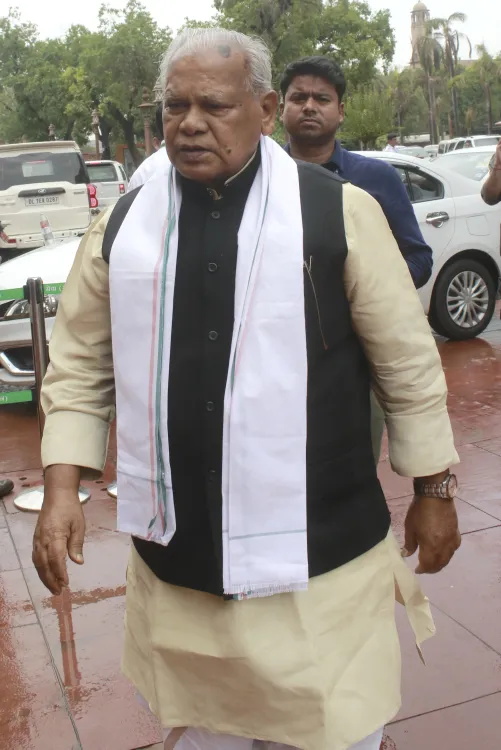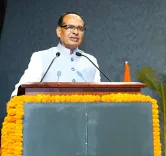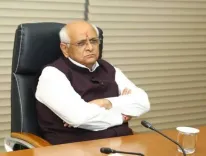Is 'Damaad Rajniti' Igniting a Political Firestorm in Bihar?

Synopsis
Key Takeaways
- 'Damaad Rajniti' is a contentious topic in Bihar politics.
- Jitan Ram Manjhi's comments underscore family loyalty issues within political families.
- The controversy highlights the intersection of personal and political ambitions.
- Upcoming elections could be swayed by perceptions of nepotism.
- Political appointments are increasingly scrutinized in the context of family ties.
Patna, June 24 (NationPress) The political atmosphere in Bihar is heating up, fueled by the ongoing debate surrounding 'Damaad Rajniti' (son-in-law politics) in the state.
On Tuesday, Union Minister and Hindustani Awam Morcha (HAM) leader Jitan Ram Manjhi intensified the situation by launching a stinging rebuttal, indirectly targeting RJD chief Tejashwi Yadav.
In response to Tejashwi's remarks about the Bihar government's alleged creation of a 'Damaad Aayog' (Commission of sons-in-law), Manjhi took to social media to deliver a sharp comeback.
Though he did not mention anyone by name, Manjhi remarked: “Joh apne parivaar ka nahi, who kisi ka nahi.” (One who is not true to his family cannot belong to anyone.)
This jab from Union Minister Manjhi alluded to the internal discord within the Lalu Prasad Yadav family, especially the ongoing feud between Tejashwi and his elder sibling Tej Pratap Yadav.
He suggested that after sidelining his brother, Tejashwi might soon isolate his sisters and their spouses, potentially hindering their future political aspirations.
“The true motive behind this discussion of 'Damaad' is a tactical maneuver. It ensures that when 'Gabbar Singh' (Lalu Yadav) seeks to adjust his daughter or son-in-law in the future, this very statement can be used to prevent such actions,” Manjhi stated in his post.
The trigger for this political skirmish was the recent appointment of Chirag Paswan’s brother-in-law Mrinal Paswan as Chairman of the Scheduled Castes and Scheduled Tribes Commission, along with Manjhi’s own son-in-law Devendra Kumar in another prominent role.
Bihar’s Rural Work Minister Ashok Chaudhary also appointed his son-in-law Sayan Kunal to a significant position in a newly-formed commission set up by the Nitish Kumar administration.
Tejashwi Yadav had previously charged the government with nepotism, labeling it 'damadvaad'.
In his counter, Manjhi urged Tejashwi to “look at his own household first” before blaming others for issues of political legacy and nepotism.
As Bihar approaches the 2025 Assembly elections, this exchange is increasingly personal, intertwining family loyalties, political appointments, and dynastic customs into the core of electoral discussions.
What started as a conversation about governance and commissions is evolving into a full-scale battle of dynasties and ideologies.








